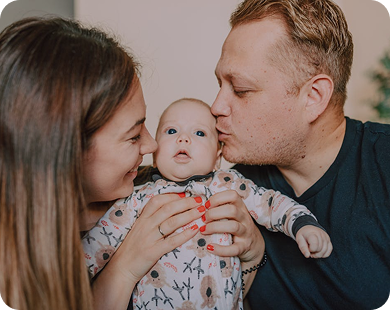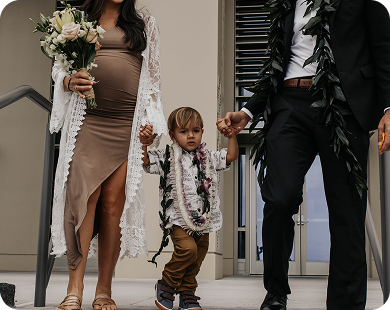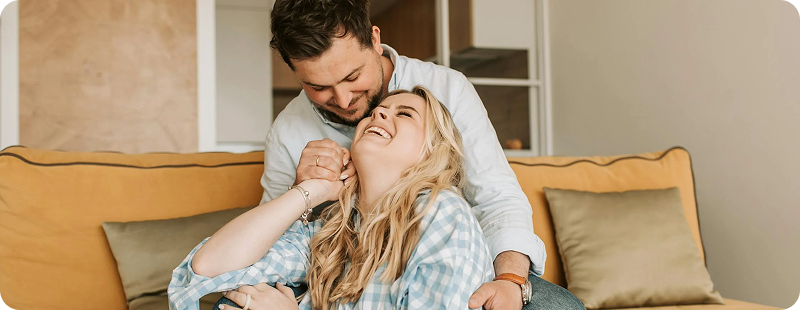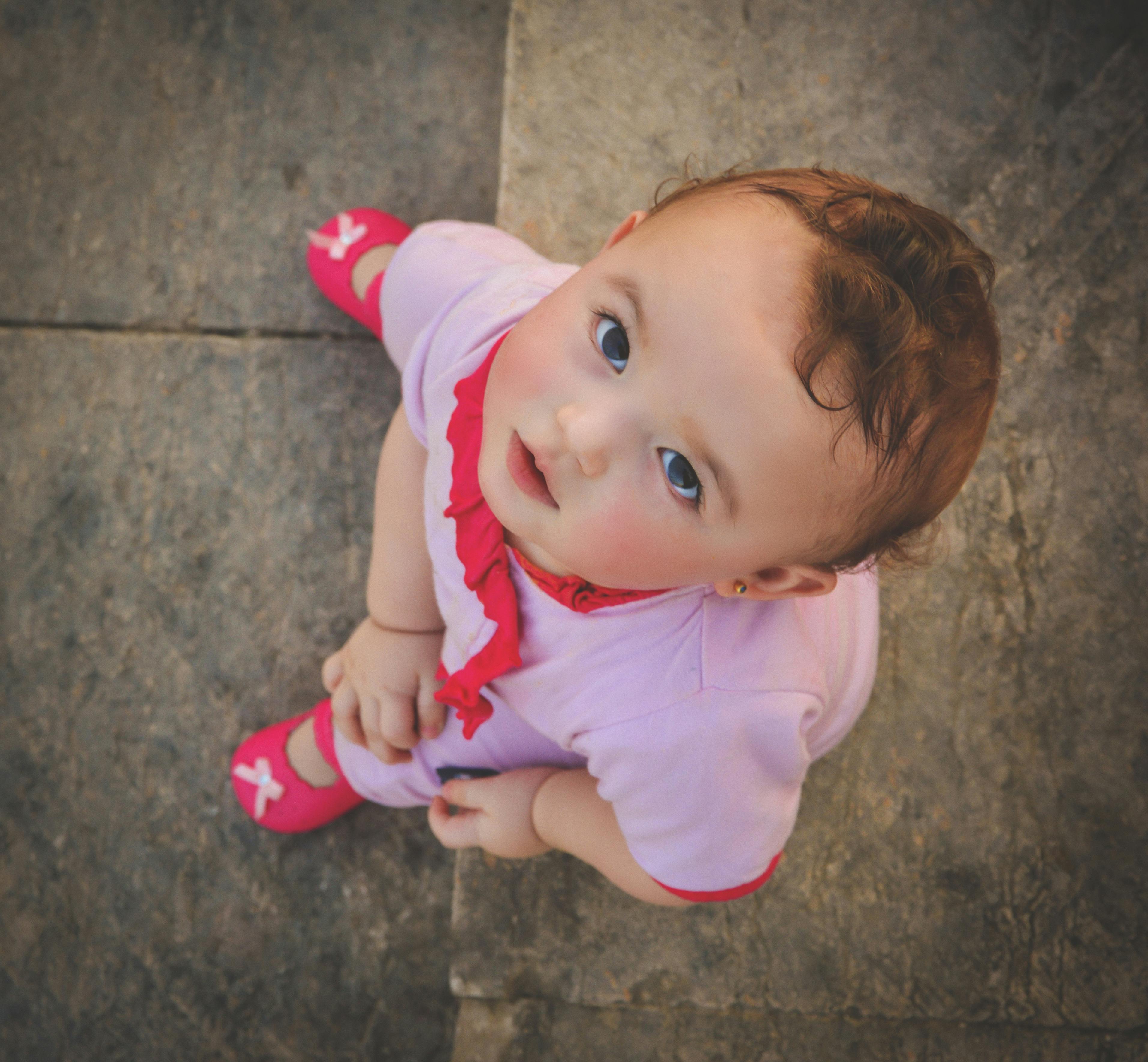When using donor eggs or sperm, you absolutely have a say in recipient matching. At Avida Fertility, we believe your voice matters in selecting donors who align with your preferences for physical characteristics, medical history, education, and personal values. While clinics handle the technical matching process, you maintain control over the final decision.
Understanding Recipient Matching in Fertility Treatment
Recipient matching is the process where fertility clinics help you select the most suitable donor for your treatment. This isn't a random assignment – it's a carefully coordinated process where your preferences guide the selection.
You have significant input in this process. Most reputable fertility clinics, including Avida Fertility, provide detailed donor profiles that include physical characteristics, medical history, educational background, and sometimes personal interests or hobbies.
| What You Can Choose | What Clinics Handle |
|---|---|
| Physical characteristics (height, weight, eye color, hair color) | Medical compatibility screening |
| Educational background preferences | Genetic testing verification |
| Ethnic background | Legal documentation |
| Personal interests or hobbies | Psychological evaluations |
| Open vs. anonymous donation | Timing coordination |
The matching process typically takes 2-6 weeks, depending on your specific requirements and donor availability. More specific preferences may extend this timeline, but finding the right match is worth the wait.
Your Role in Donor Selection
Your involvement in donor selection goes beyond simply reviewing profiles. You're an active participant in making decisions that will impact your future family.
Most clinics provide you with multiple donor options to review. You can request additional information, ask questions about specific donors, and even request to see childhood photos in some cases. Some programs allow you to hear voice recordings or read personal essays from donors.
According to Dr. Sarah Johnson, a reproductive endocrinologist at Stanford Fertility Center, "Patient autonomy in donor selection is crucial for psychological comfort and treatment success. When patients feel they've had adequate input in the selection process, they report higher satisfaction rates and better emotional outcomes" (Johnson, 2023).
You can also specify deal-breakers or must-haves in your donor criteria. Whether it's a particular educational background, specific physical traits, or certain medical history requirements, your preferences matter.
What Information You'll Receive About Donors
Donor profiles are comprehensive documents designed to help you make informed decisions. Here's what you can typically expect to see:
| Category | Information Provided |
|---|---|
| Physical Characteristics | Height, weight, eye color, hair color, skin tone, build |
| Medical History | Personal and family medical history, genetic testing results |
| Educational Background | Highest degree, field of study, academic achievements |
| Personal Information | Hobbies, interests, personality traits, motivation for donating |
| Reproductive History | Previous donations, pregnancy outcomes, fertility assessments |
Some programs also provide additional materials like baby photos, handwriting samples, or audio recordings. The level of detail varies between clinics and donor programs, but you should receive enough information to feel confident in your choice.
At Avida Fertility, we ensure our donor selection process is thorough and transparent, giving you access to comprehensive profiles that help you make the best decision for your family.
Factors That Influence Matching Success
Several factors can impact how quickly and successfully you're matched with a donor. Understanding these can help set realistic expectations for your timeline.
Geographic location plays a significant role. If you're seeking treatment at a clinic with a large donor database, you'll likely have more options. Clinics in major metropolitan areas or those with established donor programs typically offer more choices.
| Factor | Impact on Matching | Timeline Effect |
|---|---|---|
| Physical preference specificity | More specific = fewer options | May extend 2-4 weeks |
| Ethnic background requirements | Some backgrounds less available | Varies significantly |
| Educational preferences | Higher degrees = smaller pool | May add 1-3 weeks |
| Geographic location | Urban areas = more options | Can reduce by 1-2 weeks |
| Timing flexibility | More flexibility = faster matching | Can reduce significantly |
Your flexibility with certain criteria can significantly speed up the matching process. If you're open to multiple ethnic backgrounds or have broader physical preferences, you'll likely find suitable matches more quickly.
The Matching Process Step by Step
Understanding the matching process helps you prepare for what's ahead and know what to expect at each stage.
First, you'll complete a detailed questionnaire about your donor preferences. This covers everything from physical characteristics to educational background and personal values. Be as specific or as flexible as you feel comfortable with.
Next, your fertility team reviews available donors against your criteria. They'll present you with profiles of donors who meet your requirements. This initial screening typically yields 3-8 potential matches, depending on your criteria specificity.
You then review these profiles carefully. Take your time with this step – there's no rush. Many couples spend several days or even weeks reviewing options and discussing them together.
Once you've identified your preferred donor, the clinic handles the technical aspects: medical clearances, legal documentation, and cycle coordination. This is where their expertise becomes crucial in ensuring everything proceeds smoothly.
Research from the American Society for Reproductive Medicine shows that patients who feel they had adequate time and information for donor selection report 89% satisfaction rates with their choice, compared to 67% for those who felt rushed through the process (ASRM, 2022).
Common Concerns About Donor Matching
Many patients worry about whether they'll find a suitable donor or if they're being too picky with their preferences. These concerns are completely normal and understandable.
One common worry is about physical resemblance. While some patients prioritize finding donors who share similar physical traits, others focus more on medical history or educational background. There's no right or wrong approach – it's about what feels right for your family.
Another concern involves the emotional aspect of using donor gametes. Some patients worry about bonding with their future child or explaining the conception process later. These feelings are valid, and many clinics offer counseling support to help you work through these emotions.
Timing concerns also arise frequently. Patients often worry that being selective will significantly delay their treatment. While specific preferences may extend the matching timeline, finding the right donor is worth the additional time for most families.
Our comprehensive emotional preparation guide can help you navigate these feelings and prepare for your donor egg journey.
International Donor Programs and Your Choices
If you're considering treatment at an international clinic like Avida Fertility in Mexico, you might wonder how donor matching works across borders.
International programs often provide access to diverse donor pools that may not be available in your home country. This can be particularly beneficial if you're seeking specific ethnic backgrounds or characteristics that are less common in local donor programs.
| Advantage | Consideration |
|---|---|
| Larger, more diverse donor pool | Different legal frameworks |
| Often more cost-effective | Travel coordination required |
| High-quality medical care | Language considerations |
| Comprehensive screening programs | Cultural differences in profiles |
At Avida Fertility, we work with international patients regularly and understand the unique considerations involved in cross-border treatment. Our team ensures you receive the same level of detailed donor information and matching support, regardless of where you're traveling from.
The legal aspects of international donor programs are well-established, and reputable clinics handle all necessary documentation to ensure your treatment proceeds smoothly. Our experience with international egg donation safety protocols ensures your peace of mind throughout the process.
Working With Your Clinic's Matching Team
Your clinic's matching coordinators are your advocates in this process. They understand both the medical requirements and the emotional significance of donor selection.
Don't hesitate to communicate openly about your preferences, concerns, or questions. If something doesn't feel right about a potential match, speak up. Your comfort and confidence in your choice are paramount to treatment success.
Many clinics assign dedicated coordinators to guide you through the matching process. These professionals have extensive experience helping patients navigate donor selection and can provide valuable insights while respecting your autonomy in the decision.
If you're not satisfied with initial donor options, you can request additional profiles. Most clinics are willing to expand the search or adjust criteria to help you find a suitable match. Your satisfaction with the donor selection is crucial for your emotional well-being throughout treatment.
Building a good relationship with your matching team also helps with timing coordination. They can often provide insights into donor availability and suggest timing strategies that work best for your specific situation.
Legal and Ethical Considerations
Understanding the legal framework around donor matching helps ensure you're making informed decisions about your treatment.
In most jurisdictions, you have the legal right to receive comprehensive information about potential donors, within privacy constraints. This includes medical history, genetic testing results, and other relevant health information.
You also have the right to decline any donor for any reason. Clinics cannot pressure you to accept a particular match, and you should never feel rushed into making this important decision.
The ethical guidelines governing donor programs prioritize your autonomy while ensuring donor privacy and safety. Reputable clinics follow strict protocols to balance these considerations effectively.
Some patients ask about future contact with donors. Policies vary significantly between programs – some offer completely anonymous donation, others allow limited contact, and some facilitate ongoing relationships. Understanding these options helps you choose programs that align with your preferences.
Our guide on known versus anonymous egg donation explores these options in detail to help you make the best choice for your family.
Success Rates and Matching Quality
The quality of donor matching can impact treatment success rates, though the relationship isn't always straightforward.
Well-matched donors – those who meet your medical and personal criteria – often lead to better patient satisfaction and emotional outcomes. When you feel confident about your donor choice, you're more likely to approach treatment with a positive mindset.
From a medical perspective, thorough genetic and medical screening matters more than personal preferences for treatment success. However, your emotional comfort with the donor selection contributes to overall treatment experience and long-term satisfaction.
| Success Factor | Impact on Outcomes |
|---|---|
| Comprehensive medical screening | Directly impacts medical success rates |
| Genetic compatibility | Reduces risk of genetic disorders |
| Patient satisfaction with match | Improves emotional outcomes |
| Donor's previous success rates | May indicate future success potential |
Dr. Maria Rodriguez, Director of Reproductive Medicine at Barcelona IVF, notes that "Patient confidence in their donor selection correlates with treatment adherence and emotional resilience throughout the process. While medical factors determine clinical success, patient satisfaction with matching affects the overall treatment experience" (Rodriguez, 2023).
At Avida Fertility, our success rates reflect our commitment to both medical excellence and patient satisfaction in the matching process.
Frequently Asked Questions About Recipient Matching
How long does the matching process typically take?
The matching process usually takes 2-6 weeks, depending on your specific criteria and donor availability. More specific preferences may extend this timeline, while flexibility can speed it up significantly.
Can I change my mind about a donor after initial selection?
Yes, you can change your mind about a donor selection before treatment begins. However, this may delay your treatment timeline as the clinic will need to find alternative matches.
What if I can't find a donor who meets all my criteria?
If you're having difficulty finding a suitable match, discuss with your clinic about expanding the search criteria or considering alternative donor programs. Sometimes adjusting less critical preferences can open up more options.
Do I get to see photos of potential donors?
Most programs provide childhood photos of donors, and some include more recent photos. The level of visual information varies between programs, so ask your clinic about their specific policies.
Can I request additional information about a potential donor?
You can often request additional information within privacy constraints. Some programs allow you to submit specific questions that donors can choose to answer.
How do I know if a donor has been successful in previous cycles?
Reputable programs track and share donor success rates from previous cycles. This information helps you make informed decisions about donor selection.
What happens if my chosen donor becomes unavailable?
If your selected donor becomes unavailable due to medical or personal reasons, your clinic will work with you to find suitable alternatives from their donor pool.
Making Your Decision With Confidence
Choosing a donor is one of the most personal decisions in fertility treatment. Trust your instincts while considering the practical aspects of donor selection.
Remember that there's no perfect donor – there are donors who are right for your family. Focus on the characteristics that matter most to you, whether that's medical history, physical traits, educational background, or personal values.
Take advantage of counseling services if your clinic offers them. Many patients find it helpful to discuss their feelings and concerns about donor selection with trained professionals who understand the emotional complexity of this decision.
Consider involving your partner fully in the selection process if you're in a relationship. This shared decision-making can strengthen your bond and ensure you're both comfortable with the choice.
Don't let external pressures influence your decision. Well-meaning friends and family may have opinions, but ultimately this choice belongs to you and your partner. Trust your judgment and choose the donor who feels right for your family.
Our comprehensive resources on bonding with donor-conceived children can help address any lingering concerns about your future relationship with your child.
The donor matching process puts you in control of important decisions about your fertility treatment. While clinics provide expertise and support, your preferences and comfort level guide the selection. Take your time, ask questions, and trust that the right match exists for your family.
At Avida Fertility, we're committed to supporting you through every step of the donor matching process, ensuring you feel confident and comfortable with your choice as you move forward on your fertility journey.
Considering IVF treatment? Avida Fertility is here to support and guide you on your fertility journey. Reach out today for a personalized consultation and take the first step towards building your family with confidence.






.png)







.svg)
.svg)
